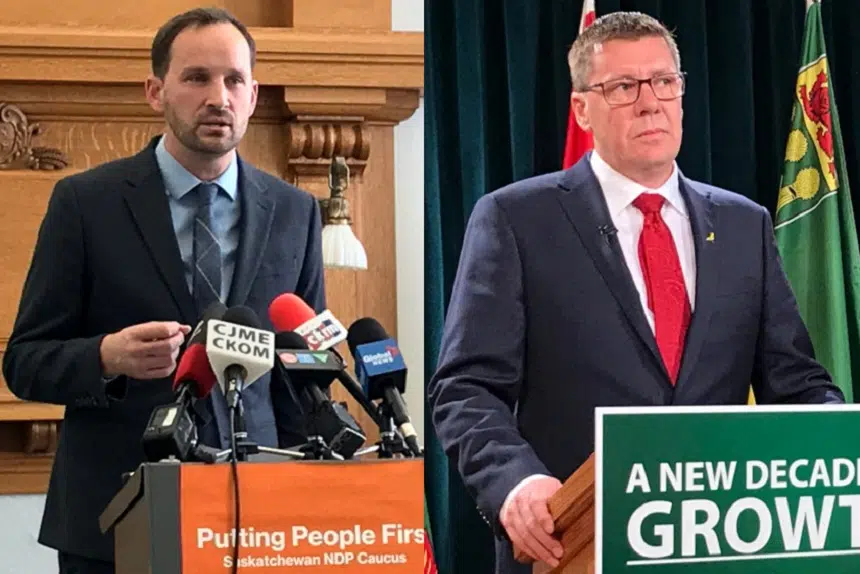With a bit of back and forth, and a kerfuffle over questions, the fall session of the Saskatchewan legislature ended on Thursday morning.
Both leaders took a look back at the previous weeks, gauging their party’s work.
“I’ve really been pleased at the way that we’ve been able to bring forth the concerns of Saskatchewan people. Saskatchewan people, as I’m travelling the province, are talking about the crises in health care and education,” said NDP Leader Ryan Meili.
His MLAs have been talking about things like complex and overcrowded classrooms during the session, as well as things in health care like hallway medicine, long-term care services, and long ER wait times.
Even though the session is over with, Meili said his team won’t stop talking about these things.
“As we’re out in the public, we’re going to continue to talk about exactly those issues and continue to push solutions forward,” said Meili.
Premier Scott Moe took the opportunity to bring attention back to his government’s growth plan, which was unveiled in November. It details the goals and some of the plans to grow Saskatchewan over the next 10 years.
“The Growth Plan will serve as our roadmap to growing a strong economy, strong communities and strong families as we enter into the 2020s and look ahead to 2030,” Moe said in a news release.
As part of that plan, the province announced it would be opening trade offices in Japan, India, and Singapore.
“We will continue to look for ways to assert more autonomy over Saskatchewan’s interests, including examining increased autonomy over areas like taxation, immigration, trade and climate change policy,” said Moe.
Moe also highlighted some of the legislation brought forward this fall, including the bill to further regulate vaping products in the province, the bill to allow the province to try to recoup health-care costs from opioid makers, and the bill implementing more transparency around lobbying.











